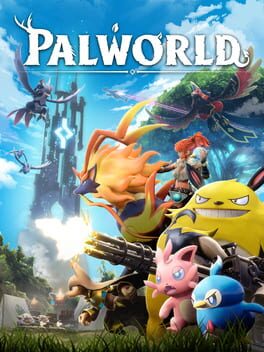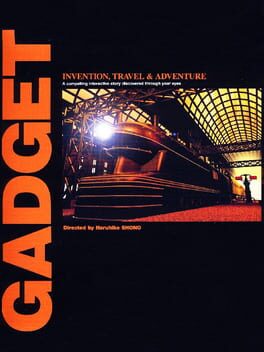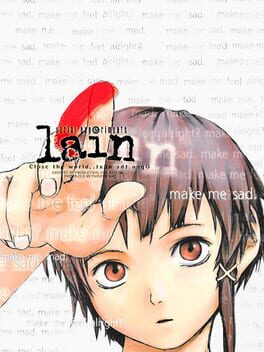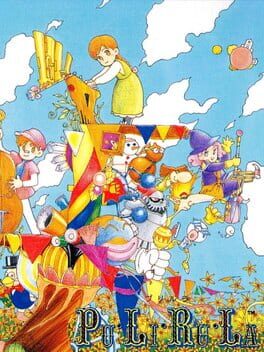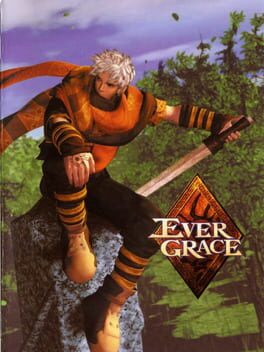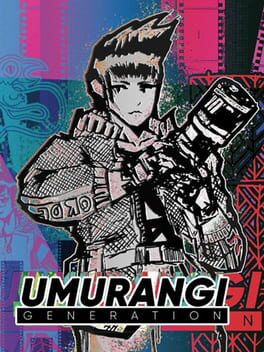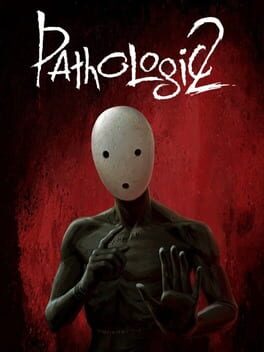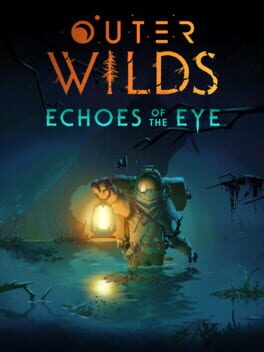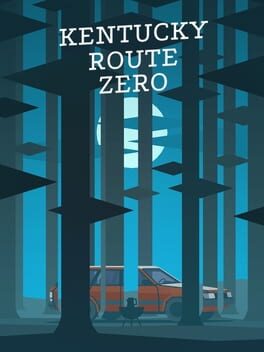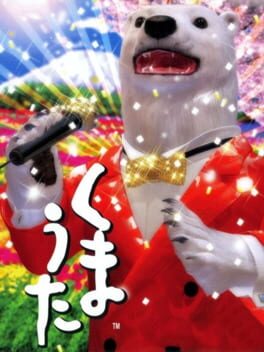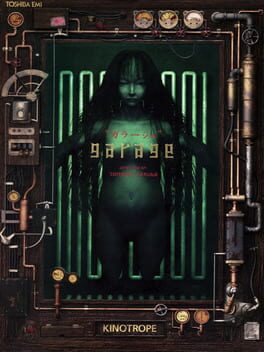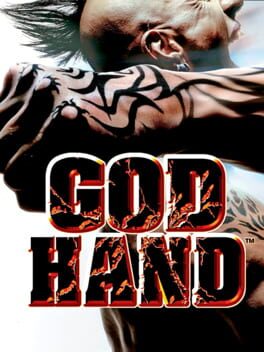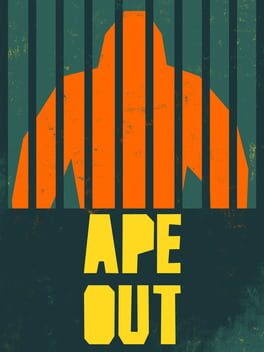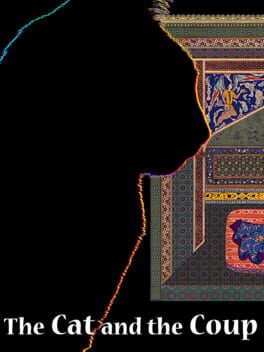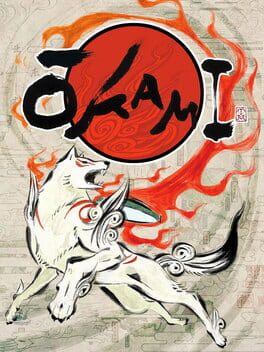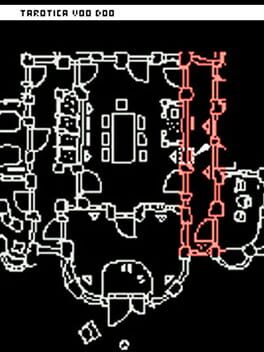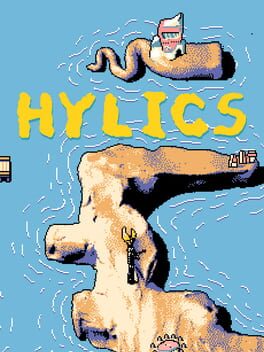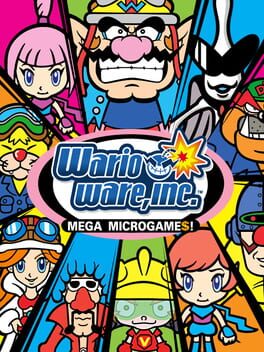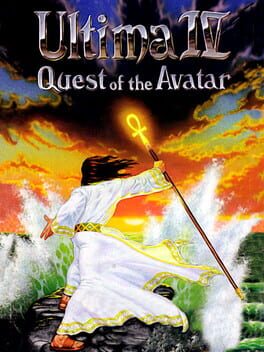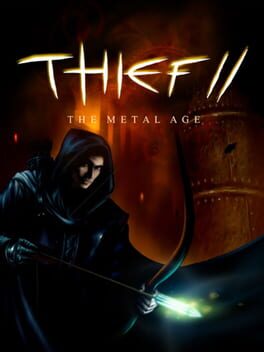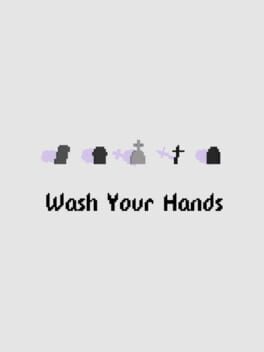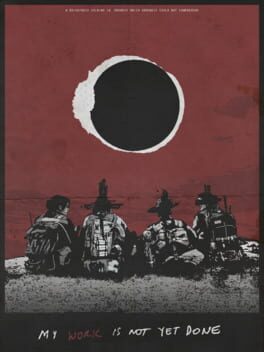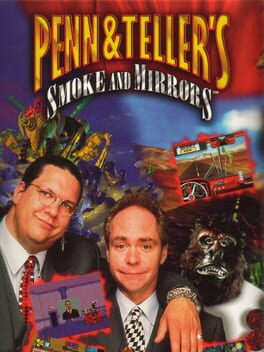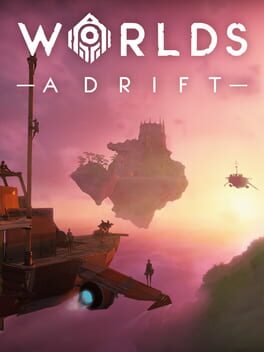Hjunosuko
6 reviews liked by Hjunosuko
Persona 5 Royal
2019
There's something amusing about seeing a lot of big fans of Persona 5 in my circle rag on Persona 4 constantly when, in reality, the core issues of both of their stories are near-identical. They both have very formulaic story structures that wear out their welcome by the time they do start shaking things up, they have fairly weak casts that are severely underwritten past their initial arcs, and they're both very non-committal or even contradictory with presenting their main themes. If this is the case, then why do I view Persona 4 in a somewhat more positive light while Persona 5 gets worse for me as time goes on, despite the fact that the lowest lows of 4 are far worse than 5’s? Well, not only does Persona 4 have its own unique strengths that 5 fails to capture, but these direct parallels in shortcomings give me the impression that Atlus learned practically nothing from the shortcomings of 4 after a near-decade, aside from slightly getting the memo that homophobia might not actually be that funny. (Emphasis on slightly)
The main cast is probably the worst out of any modern Persona cast. Not to say that they’re all irredeemably terrible, but they just become incredibly flat once their specific arc is concluded, which makes it even more damning when characters like Haru don’t even have that to their name with how poorly implemented Morgana’s arc is. It doesn’t really take long for them to neatly slot into their respective archetypes without branching out much beyond them. Ann probably gets this the worst, she doesn’t really get to go beyond being “the girl” of the group when she had so much going on during Kamoshida’s arc. I think a better approach would’ve been to limit the cast just to the initial trio. Their dynamic in the early game is very strong and could totally carry a whole game on its own. Yusuke felt pretty out of place once he fully joined the Phantom Thieves, and the sidelining of growth for each party member becomes very apparent once Makoto joins. I don’t think it’s that much of a stretch to say it would work, with how often the series tries to push a “main trio” of their parties. Even Persona 4 directly did it, when it arguably started off with more of a quartet than a trio. I don’t know how it would affect the rest of the game, but what I do know is that the characters do need a lot more than they get, especially in a series that prides itself on interpersonal relationships like Persona does.
I don’t see myself as someone that’s too harsh regarding the “Show don’t tell” critique. I like a good chunk of media that are very in your face about their messages and themes. The point where I do feel it’s right to make that critique is when it feels like a piece of media is talking down to me, which is absolutely the case with Persona 5. It never trusts the player to come to their own conclusions about what they’re being presented, so it feels the need to spell the meaning behind every interaction out in meticulous detail so that a 3 year old can keep up with it. For example, there’s a reoccurring puzzle throughout the Pyramid of Wrath, (Which is my least favorite stretch of the whole game for a myriad of reasons that I don’t intend to go into) where you put together hieroglyphs that depict parts of the palace ruler’s past, and their relationship with a close family member. I thought it was a cool way to let the player piece together the trauma that they endured, especially with how that comes together with the palace’s boss, but every single time you clear one, the characters explain exactly what it means and tell you exactly how to feel. It’s really frustrating when it feels like it has to spell out every single interaction in the entire game. I feel like you could shave off 10 hours from the game just by giving it a tighter script, it’s unnecessary bloat that does nothing but dampen the storytelling. It’s even more baffling that it has this approach when ultimately, it doesn’t really have anything to say until the Royal arc hits. It’s trying to tackle much more grandiose themes of society and rebellion, but it always feels like it’s only putting a single toe into an incredibly deep pool. Let me be clear, I don’t need the PTs to start picking apart every aspect of each corrupt system in the nation. I feel like too many critiques go down that route, especially since it does place more of an emphasis on personal conflict. But even so, it could do a lot better with acknowledging it than the “All’s well that ends well, right?” approach we’re given. That’s honestly my biggest problem with the modern series. It’s so non-commital with presenting these potentially interesting ideas that the stick it’s hitting the issues it tackles seems to be more like a damp pool noodle.
As I’m writing this, I’m noticing a major pattern between each of this game’s aspects. I really like everything about it on paper. The general theme of rebellion that has sparks throughout the whole game, that’s cool! Too bad the ways it explores that theme are pretty paper-thin, even with the social links that usually thrive with conveying themes just as well as if not better than the main plot. Having social links teach you more specific abilities to use throughout the game for a sense of growth, that’s cool! Too bad that the way they’re balanced makes them range from practically meaningless to game-breakingly powerful. Every single addition to the game’s combat, the baton passes, the guns, all of that is cool! Too bad none of the game is balanced around it and it makes even a normal playthrough one where you’re stupidly overpowered. I think this is why Persona 5 fails for me in ways that the other games in the series don’t quite as much. As much as 3 and 4 had their low points and downsides, both of those did have consistent strengths that they were able to bring out exceptionally well. For every great and fresh idea that P5 has that isn’t strictly related to its presentation, there’s something else that ends up completely undercutting it.
In a way, that’s why despite how fun it can be to dunk on Atlus and this game, I don’t like the distaste that I have for it. It does have some genuinely fascinating ideas, I can see a spark of something truly spectacular trapped inside of this. The Royal arc proves this, it’s a fantastic piece of work that’s only weaknesses are the foundation that it’s built upon. If Atlus really is capable of being a tour de force in video game storytelling and can capitalize on the strengths of Royal’s writing, then Persona 6 could be the first game in the series that I really like without any caveats. All I need is proof that modern Atlus has that bite in its narratives, which it’s mostly consistently proven to not have over this decade. I want to believe that Atlus can pull through, and bring us one last surprise…
(Also maybe don’t have a prominent party member that plays into every single autism stereotype in the book at maximum capacity with the core point being “ooh she’s such a quirky gamer girl!” Cool? Cool.)
The main cast is probably the worst out of any modern Persona cast. Not to say that they’re all irredeemably terrible, but they just become incredibly flat once their specific arc is concluded, which makes it even more damning when characters like Haru don’t even have that to their name with how poorly implemented Morgana’s arc is. It doesn’t really take long for them to neatly slot into their respective archetypes without branching out much beyond them. Ann probably gets this the worst, she doesn’t really get to go beyond being “the girl” of the group when she had so much going on during Kamoshida’s arc. I think a better approach would’ve been to limit the cast just to the initial trio. Their dynamic in the early game is very strong and could totally carry a whole game on its own. Yusuke felt pretty out of place once he fully joined the Phantom Thieves, and the sidelining of growth for each party member becomes very apparent once Makoto joins. I don’t think it’s that much of a stretch to say it would work, with how often the series tries to push a “main trio” of their parties. Even Persona 4 directly did it, when it arguably started off with more of a quartet than a trio. I don’t know how it would affect the rest of the game, but what I do know is that the characters do need a lot more than they get, especially in a series that prides itself on interpersonal relationships like Persona does.
I don’t see myself as someone that’s too harsh regarding the “Show don’t tell” critique. I like a good chunk of media that are very in your face about their messages and themes. The point where I do feel it’s right to make that critique is when it feels like a piece of media is talking down to me, which is absolutely the case with Persona 5. It never trusts the player to come to their own conclusions about what they’re being presented, so it feels the need to spell the meaning behind every interaction out in meticulous detail so that a 3 year old can keep up with it. For example, there’s a reoccurring puzzle throughout the Pyramid of Wrath, (Which is my least favorite stretch of the whole game for a myriad of reasons that I don’t intend to go into) where you put together hieroglyphs that depict parts of the palace ruler’s past, and their relationship with a close family member. I thought it was a cool way to let the player piece together the trauma that they endured, especially with how that comes together with the palace’s boss, but every single time you clear one, the characters explain exactly what it means and tell you exactly how to feel. It’s really frustrating when it feels like it has to spell out every single interaction in the entire game. I feel like you could shave off 10 hours from the game just by giving it a tighter script, it’s unnecessary bloat that does nothing but dampen the storytelling. It’s even more baffling that it has this approach when ultimately, it doesn’t really have anything to say until the Royal arc hits. It’s trying to tackle much more grandiose themes of society and rebellion, but it always feels like it’s only putting a single toe into an incredibly deep pool. Let me be clear, I don’t need the PTs to start picking apart every aspect of each corrupt system in the nation. I feel like too many critiques go down that route, especially since it does place more of an emphasis on personal conflict. But even so, it could do a lot better with acknowledging it than the “All’s well that ends well, right?” approach we’re given. That’s honestly my biggest problem with the modern series. It’s so non-commital with presenting these potentially interesting ideas that the stick it’s hitting the issues it tackles seems to be more like a damp pool noodle.
As I’m writing this, I’m noticing a major pattern between each of this game’s aspects. I really like everything about it on paper. The general theme of rebellion that has sparks throughout the whole game, that’s cool! Too bad the ways it explores that theme are pretty paper-thin, even with the social links that usually thrive with conveying themes just as well as if not better than the main plot. Having social links teach you more specific abilities to use throughout the game for a sense of growth, that’s cool! Too bad that the way they’re balanced makes them range from practically meaningless to game-breakingly powerful. Every single addition to the game’s combat, the baton passes, the guns, all of that is cool! Too bad none of the game is balanced around it and it makes even a normal playthrough one where you’re stupidly overpowered. I think this is why Persona 5 fails for me in ways that the other games in the series don’t quite as much. As much as 3 and 4 had their low points and downsides, both of those did have consistent strengths that they were able to bring out exceptionally well. For every great and fresh idea that P5 has that isn’t strictly related to its presentation, there’s something else that ends up completely undercutting it.
In a way, that’s why despite how fun it can be to dunk on Atlus and this game, I don’t like the distaste that I have for it. It does have some genuinely fascinating ideas, I can see a spark of something truly spectacular trapped inside of this. The Royal arc proves this, it’s a fantastic piece of work that’s only weaknesses are the foundation that it’s built upon. If Atlus really is capable of being a tour de force in video game storytelling and can capitalize on the strengths of Royal’s writing, then Persona 6 could be the first game in the series that I really like without any caveats. All I need is proof that modern Atlus has that bite in its narratives, which it’s mostly consistently proven to not have over this decade. I want to believe that Atlus can pull through, and bring us one last surprise…
(Also maybe don’t have a prominent party member that plays into every single autism stereotype in the book at maximum capacity with the core point being “ooh she’s such a quirky gamer girl!” Cool? Cool.)
Palworld
2024
This review contains spoilers
Finally, after all these years, all this waiting...a sequel to Metal Gear Solid 4.
Less of an elegant melding of the design philosophies of Xenoblade 1 and 2 and more a Burnout-Esque car crash of systems, careening discordant mechanics at each other again and again, piling mechanic upon mechanic upon mechanic, leaving each one shattered by impact, until finally, just when it would be funniest to...another system comes screaming in and collides with the pile-up. On paper, Xenoblade 3 seems like it might really be the best of both worlds, but paper is famously two-dimensional. Practice reveals that Xenoblade 3's complete incoherence, its inability to make any single element of its design work fully with any other results in a game that was, for me, actively unpleasant and frustrating to play through.
So many things about Xenoblade 3 reward you with experience points, be they sidequests, chain attacks, or exploration, and certainly the most fun I had in Xenoblade 3 was the initial thrill of abusing the chain attack to get 1000% extra EXP and go up like 4 levels at once. But because the ability to level down to keep apace with the level curve of the main quest is bafflingly locked behind New Game+, and because fighting enemies below your level substantially slows down the unlocking of your Jobs, which the game encourages you to switch near constantly but also encourages you to remain on a single job so that others can use it too, what gaining that EXP practically means is a short burst of endorphins at seeing Number Go Up in exchange for an hour or two of staid misery as your progression grinds to a halt and you languish in a party composition you aren't enjoying so that you can unlock one you do like later. A game where you are punished for progression, and punished for not progressing by potentially missing out on the first game in the trilogy where there is more than a handful of sidequests with actual stories and meaningful gameplay unlocks in them. Xenoblade 3 represents the point where the memetic maximalism of the series, something I have always enjoyed about it, finally buckles and collapses under it's own weight, the cumulative effect of all this is being that you are left with a game built on systems of rewards that actively work against things the rest of it is doing, that make the game frustrating and unpleasant to play, the RPG design equivalent of being pulled in 4 separate directions by each of your limbs.
The story produces a similar effect. While the pretty great core cast provides a solid foundation for the game, thematically or stylistically there's not a single theme or idea that Xenoblade 3 brings up that it will not at some point contradict or muddy, not a single thing it ever fully commits to. Sometimes this is borderline parody, like the scene where the party rages with righteous fury at members of Mobius for having the temerity to treat killing people as a game, only to then in the very next screen meet a hero character who treats killing people as a game that every single character is completely on board with except for Eunie, who is chided for the crime of consistency and is asked to undergo a sidequest character arc in order to stop committing it. It often has the feel of a first draft, especially in how characters significant to the histories of our crew are introduced in flashback seconds before they reappear in the present to have a dramatic and tearful finale. Down to the very basics, the broad theme that comprises so much of the story and the gameplay, of two disparate peoples doing good by coming together, is shattered by an ending that sees their separation as a tragic necessity. By any conventional standards of narrative or mechanical coherence, Xenoblade Chronicles 3 is an unmitigated disaster.
This isn't a unique failing of this game, however. Some of this is not unique to Xenoblade 3, but rather represents a degree of exhaustion I have with elements of Xenoblade that have remained unchanging. Xenoblade has always taken influence from MMORPGs, but it's influences have never really extended beyond the experience of the player character. Playing through raid or even dungeon bosses in an MMO, with their own discrete mechanics and designs that throw wrenches into your rotations you must react to, alongside Xenoblade 3 thoroughly demonstrates that if Xenoblade is a single-player MMO, it is a single-player MMO where every single enemy is a mob, where every single fight plays out almost the exact same way. Whether you are fighting a lowly bunnit or the God of Genesis, you're going to be just trying to execute your rotation all the same. And the rotations themselves are incredibly simple, the actual challenge is navigating around the uniformly terrible AI of your squadmates. The chain attack has always felt like a concession to this, and never more so than here, where at almost any time the + button lets you opt into a mode of play that tosses out basically the entire rest of the battle system to play a minigame that also happens to be a completely dominant strategy that is more powerful than anything else in the game, at the cost of being incredibly drawn-out and boring. Similarly, the world design, which is basically the same as the prior games but much wider, exposes just how uninteresting these spaces are to explore when the visuals and atmosphere aren't doing the heavy lifting. But Aionios is a particularly bland and staid world, with precious little interesting visual scenery and barely buoyed by a soundtrack that, Mobius themes aside, I found almost totally unmemorable. Both in the things it takes away from prior games that may have distracted from it, and the things it does itself, Xenoblade 3 does an admirable job at demonstrating the rot at the core of this entire series, the flaws and failings that have always been there, brought into the light more completely for the first time.
And it almost works. It genuinely, sincerely, almost works.
The world of Xenoblade 3 is a literal mash-up of the worlds of Xenoblade 1 and 2, a staid, in-between world maintained in eternal stasis and backward-looking by a group of (awfully-dressed) manchildren who treat all of this as consequence-less entertainment for themselves, who hang out in a theater watching clips from the world outside as if they are little more than episodes of a weekly seasonal anime. This lack of coherence, the way the writing never takes more than a step without stumbling, the way the ungodly chimera of systems and mechanics makes simply existing in Aionios feel genuinely stressful for me, against all odds does manage to feel resonant with the parts of the story that are about how existing in this singular moment is awful, how we need to forcefully draw a line under all this and move on. When characters talk about how much they hate this world, I sincerely agree with them. I hate it because the time I have spent here, because I have hiked across its vast empty wastes, seeing off dead bodies in a spiritual ritual reduced to a Crackdown Orb, because I have fought the battles of this endless war between Keves and Agnus and found them to be unpleasant and unsatisfying, because I have found the carrots of progression it offers to be hollow and tasteless. Xenoblade Chronicles 3 earnestly and sincerely represents a formal boldness that I genuinely did not think Monolith Soft was capable of, a willingness to produce a game where the act of playing feels terrible in order to underscore its point about how the world it presents must be ended. Even if it's lack of materialism and eagerness to abstract it's themes means it's never going to hit me like games that name their enemy (I've seen people talk about XB3 as an anti-capitalist game and while I can see how it's talk about destroying the Endless Now would be resonant with feelings like that, I'd like to direct your attention towards the early scene where a nopon explains the Free Market to the party and they all go "that's so poggers" and also the unbridled Shinzo Abe-ness of certain scenes, you know the ones) it nonetheless represents Xenoblade going further and reaching higher than, frankly, I ever thought it capable of. When a late-game boss starting randomly spouting contextless lines from Xenogears' theme song, I knew that some part of this game knew what was up.
I wish the rest of it did.
Perhaps Xenoblade 3 would be dishonest with itself if it did not also muddy and fumble the one part of it tying all the disparate strands together, but by indulging in earnest and straightforward nostalgia to an almost comical extent. One of the earliest things that intrigued me about Xenoblade 3 was how each of the two nations is ruled by a figurehead representation of a prominent waifu character from a prior game, where the uncritical worship of these characters is manufactured and exploited in order to maintain the endless war machine. It was cutting, it was incisive, and seemed self-aware, however briefly, of just how wretched the fandoms of these games are. Of course, it couldn't last. By the end, these figureheads are replaced with the Real Versions of these characters, who actually are uncritically good and brilliant and worthy of worship, whose immense power is absolutely necessary to destroy "The Endless Now", and also my willingness to find something that means anything in this mess. The one thing you absolutely cannot do when making a story about clinging to the past being wrong and bad is to parade around that same past as if it's the second coming, to indulge so completely in uncritical fanservice that buries anything interesting beneath tuneless self-indulgence that sounds like a thousand teenage boys yelling "BRO PEAK FICTION". If Xenoblade 3 isn't willing to commit to what it's doing, why should I? Why did I spend 100 hours of my life that I will never get back on a game that's just going to throw away everything interesting it's doing a the final hurdle? What was the point of any of this?
The angry tone of the prior passage is not how I feel now, given time to relax and reflect on the parts of the game that do genuinely work for me, like the main party (Eunie and Taion prove that Monolith Soft is in fact capable of writing a good romance, they have thus far simply chosen not to) and, of course, the parts that Really Don't Work, which are the things that worked most of all. But I'm not really able to get over that the one thing I found was truly interesting and exceptional about this game was something it just couldn't resist the allure of Servicing Fans enough to bring home. With Xenoblade Chronicles 3, Monolith Soft set out to prove that Xenoblade cannot continue the way it is, and the worst part is that they succeeded...just in a way that convinced me that the problem might lie deeper within Monolith Soft, not simply with Xenoblade itself.
Ultimately, I just think these games aren't for me anymore. I really gave it the best try I could, but I'm content to let the people who do still love them enjoy it themselves, whilst I let time turn it into a faded memory. The best Xenoblade, on paper? Definitely. But then, cardboard cut-outs don't make for great company, do they?
Less of an elegant melding of the design philosophies of Xenoblade 1 and 2 and more a Burnout-Esque car crash of systems, careening discordant mechanics at each other again and again, piling mechanic upon mechanic upon mechanic, leaving each one shattered by impact, until finally, just when it would be funniest to...another system comes screaming in and collides with the pile-up. On paper, Xenoblade 3 seems like it might really be the best of both worlds, but paper is famously two-dimensional. Practice reveals that Xenoblade 3's complete incoherence, its inability to make any single element of its design work fully with any other results in a game that was, for me, actively unpleasant and frustrating to play through.
So many things about Xenoblade 3 reward you with experience points, be they sidequests, chain attacks, or exploration, and certainly the most fun I had in Xenoblade 3 was the initial thrill of abusing the chain attack to get 1000% extra EXP and go up like 4 levels at once. But because the ability to level down to keep apace with the level curve of the main quest is bafflingly locked behind New Game+, and because fighting enemies below your level substantially slows down the unlocking of your Jobs, which the game encourages you to switch near constantly but also encourages you to remain on a single job so that others can use it too, what gaining that EXP practically means is a short burst of endorphins at seeing Number Go Up in exchange for an hour or two of staid misery as your progression grinds to a halt and you languish in a party composition you aren't enjoying so that you can unlock one you do like later. A game where you are punished for progression, and punished for not progressing by potentially missing out on the first game in the trilogy where there is more than a handful of sidequests with actual stories and meaningful gameplay unlocks in them. Xenoblade 3 represents the point where the memetic maximalism of the series, something I have always enjoyed about it, finally buckles and collapses under it's own weight, the cumulative effect of all this is being that you are left with a game built on systems of rewards that actively work against things the rest of it is doing, that make the game frustrating and unpleasant to play, the RPG design equivalent of being pulled in 4 separate directions by each of your limbs.
The story produces a similar effect. While the pretty great core cast provides a solid foundation for the game, thematically or stylistically there's not a single theme or idea that Xenoblade 3 brings up that it will not at some point contradict or muddy, not a single thing it ever fully commits to. Sometimes this is borderline parody, like the scene where the party rages with righteous fury at members of Mobius for having the temerity to treat killing people as a game, only to then in the very next screen meet a hero character who treats killing people as a game that every single character is completely on board with except for Eunie, who is chided for the crime of consistency and is asked to undergo a sidequest character arc in order to stop committing it. It often has the feel of a first draft, especially in how characters significant to the histories of our crew are introduced in flashback seconds before they reappear in the present to have a dramatic and tearful finale. Down to the very basics, the broad theme that comprises so much of the story and the gameplay, of two disparate peoples doing good by coming together, is shattered by an ending that sees their separation as a tragic necessity. By any conventional standards of narrative or mechanical coherence, Xenoblade Chronicles 3 is an unmitigated disaster.
This isn't a unique failing of this game, however. Some of this is not unique to Xenoblade 3, but rather represents a degree of exhaustion I have with elements of Xenoblade that have remained unchanging. Xenoblade has always taken influence from MMORPGs, but it's influences have never really extended beyond the experience of the player character. Playing through raid or even dungeon bosses in an MMO, with their own discrete mechanics and designs that throw wrenches into your rotations you must react to, alongside Xenoblade 3 thoroughly demonstrates that if Xenoblade is a single-player MMO, it is a single-player MMO where every single enemy is a mob, where every single fight plays out almost the exact same way. Whether you are fighting a lowly bunnit or the God of Genesis, you're going to be just trying to execute your rotation all the same. And the rotations themselves are incredibly simple, the actual challenge is navigating around the uniformly terrible AI of your squadmates. The chain attack has always felt like a concession to this, and never more so than here, where at almost any time the + button lets you opt into a mode of play that tosses out basically the entire rest of the battle system to play a minigame that also happens to be a completely dominant strategy that is more powerful than anything else in the game, at the cost of being incredibly drawn-out and boring. Similarly, the world design, which is basically the same as the prior games but much wider, exposes just how uninteresting these spaces are to explore when the visuals and atmosphere aren't doing the heavy lifting. But Aionios is a particularly bland and staid world, with precious little interesting visual scenery and barely buoyed by a soundtrack that, Mobius themes aside, I found almost totally unmemorable. Both in the things it takes away from prior games that may have distracted from it, and the things it does itself, Xenoblade 3 does an admirable job at demonstrating the rot at the core of this entire series, the flaws and failings that have always been there, brought into the light more completely for the first time.
And it almost works. It genuinely, sincerely, almost works.
The world of Xenoblade 3 is a literal mash-up of the worlds of Xenoblade 1 and 2, a staid, in-between world maintained in eternal stasis and backward-looking by a group of (awfully-dressed) manchildren who treat all of this as consequence-less entertainment for themselves, who hang out in a theater watching clips from the world outside as if they are little more than episodes of a weekly seasonal anime. This lack of coherence, the way the writing never takes more than a step without stumbling, the way the ungodly chimera of systems and mechanics makes simply existing in Aionios feel genuinely stressful for me, against all odds does manage to feel resonant with the parts of the story that are about how existing in this singular moment is awful, how we need to forcefully draw a line under all this and move on. When characters talk about how much they hate this world, I sincerely agree with them. I hate it because the time I have spent here, because I have hiked across its vast empty wastes, seeing off dead bodies in a spiritual ritual reduced to a Crackdown Orb, because I have fought the battles of this endless war between Keves and Agnus and found them to be unpleasant and unsatisfying, because I have found the carrots of progression it offers to be hollow and tasteless. Xenoblade Chronicles 3 earnestly and sincerely represents a formal boldness that I genuinely did not think Monolith Soft was capable of, a willingness to produce a game where the act of playing feels terrible in order to underscore its point about how the world it presents must be ended. Even if it's lack of materialism and eagerness to abstract it's themes means it's never going to hit me like games that name their enemy (I've seen people talk about XB3 as an anti-capitalist game and while I can see how it's talk about destroying the Endless Now would be resonant with feelings like that, I'd like to direct your attention towards the early scene where a nopon explains the Free Market to the party and they all go "that's so poggers" and also the unbridled Shinzo Abe-ness of certain scenes, you know the ones) it nonetheless represents Xenoblade going further and reaching higher than, frankly, I ever thought it capable of. When a late-game boss starting randomly spouting contextless lines from Xenogears' theme song, I knew that some part of this game knew what was up.
I wish the rest of it did.
Perhaps Xenoblade 3 would be dishonest with itself if it did not also muddy and fumble the one part of it tying all the disparate strands together, but by indulging in earnest and straightforward nostalgia to an almost comical extent. One of the earliest things that intrigued me about Xenoblade 3 was how each of the two nations is ruled by a figurehead representation of a prominent waifu character from a prior game, where the uncritical worship of these characters is manufactured and exploited in order to maintain the endless war machine. It was cutting, it was incisive, and seemed self-aware, however briefly, of just how wretched the fandoms of these games are. Of course, it couldn't last. By the end, these figureheads are replaced with the Real Versions of these characters, who actually are uncritically good and brilliant and worthy of worship, whose immense power is absolutely necessary to destroy "The Endless Now", and also my willingness to find something that means anything in this mess. The one thing you absolutely cannot do when making a story about clinging to the past being wrong and bad is to parade around that same past as if it's the second coming, to indulge so completely in uncritical fanservice that buries anything interesting beneath tuneless self-indulgence that sounds like a thousand teenage boys yelling "BRO PEAK FICTION". If Xenoblade 3 isn't willing to commit to what it's doing, why should I? Why did I spend 100 hours of my life that I will never get back on a game that's just going to throw away everything interesting it's doing a the final hurdle? What was the point of any of this?
The angry tone of the prior passage is not how I feel now, given time to relax and reflect on the parts of the game that do genuinely work for me, like the main party (Eunie and Taion prove that Monolith Soft is in fact capable of writing a good romance, they have thus far simply chosen not to) and, of course, the parts that Really Don't Work, which are the things that worked most of all. But I'm not really able to get over that the one thing I found was truly interesting and exceptional about this game was something it just couldn't resist the allure of Servicing Fans enough to bring home. With Xenoblade Chronicles 3, Monolith Soft set out to prove that Xenoblade cannot continue the way it is, and the worst part is that they succeeded...just in a way that convinced me that the problem might lie deeper within Monolith Soft, not simply with Xenoblade itself.
Ultimately, I just think these games aren't for me anymore. I really gave it the best try I could, but I'm content to let the people who do still love them enjoy it themselves, whilst I let time turn it into a faded memory. The best Xenoblade, on paper? Definitely. But then, cardboard cut-outs don't make for great company, do they?
people talk about this game like it's some groundbreaking, breathtaking, wonderful pinnacle of video games and i really wish i understood that. this game feels really nice to move around in, its visuals are really appealing and its score is pretty cute. but there's not much of a real narrative (or writing at all), no memorable characters, no cool side-quests, no dungeons, a pitiful lack of enemy variety + almost no bosses, and nothing that made exploring feel worthwhile. most of it feels like filler check-list fluff (towers, shrines, koroks). the world is well-designed but there's not much substance inside of it beyond its sandbox elements. i genuinely feel like, insane for not liking this the way people talk about it but i just do not see it personally. it's just okay!
Persona 5 Royal
2019
I hate that I don't like this game. I wish I did. For the first thirty or so hours, I did. But then I finished it, and I thought about it, and I realized that I don't like Persona 5. Some things here are excellent, and some things here are atrocious, and they all blend together into something that's only ever able to peak at the heights of "okay".
The writing is my biggest problem, with the way the game handles its characters being the strongest flaw. The trauma these people face is treated as a punchline at their expense far too often. It's not an uncommon opinion that Ann gets it the worst of the lot; she's a survivor of sexual assault at the hands of a powerful teacher, and the game constantly takes time out to make her own party members leer at her and make her uncomfortable. Yusuke's "nude model" scene is talked about a lot, but it really isn't that bad, especially compared to later instances — one scene forces her and every other woman in the party into swimsuits to seduce a keycard out of some old rich lecher, and it's played as a joke until the guy grabs Ann, threatens her, and then turns into a big shadow monster who you kill and take the keycard from regardless, making the whole seduction plan pointless. Ryuji and Joker will try to stare up her skirt when she lays down on a couch, gawk at her thighs when she gets caught in the rain, and peer down her top when she's fanning herself in the desert. Ryuji may just be a dumbass who Ann can easily rebuke, but Joker is the leader of the group, and unquestionably holds power over her and the other Phantom Thieves. He doesn't treat any of the other characters this way, and he keeps doing it in cutscenes that you have no control over. Regardless of how the player treats Ann, your character won't stop creeping on her as soon as you give up control. It's weird. It's really fucking weird. Speaking of Ryuji, it's just as tasteless to have a character who was physically abused by that same teacher to the point of broken bones and ostracization be the butt of so many jokes where the punchline is him getting the shit kicked out of him. He's rewarded for both getting the track team back together in his confidant route and for saving every single member of the Phantom Thieves from a sinking ship with the exact same thing: the people he's going out of his way to protect punching him senseless until he's left in a crumpled, bruised, moaning heap on the ground. Ha ha. It's also implied in a scene that comes completely out of nowhere that he gets molested by two gay men in Shinjuku. All of this is played for laughs. It should be obvious to anyone reading this or playing the game for themselves that none of this is funny. It's fucking horrific. It's made worse that someone (or several someones) on the ATLUS writing team think that any of this is funny. I've heard that the localization team begged to be allowed to make script changes to address these issues, and were refused; whether or not this is true, the script that's here is the one that we've got, and the few changes made don't fix these core problems with the writing.
I'm still kind of confused to see all of the "I hate JRPGs!" crowd (your Dunkeys, your Yahtzee Croshaws) circle the wagons around this game and talk about how Persona 5 broke the mold. Mechanically, it's Pokemon. There's nothing wrong with Pokemon. Pokemon can be fun. But the core combat loop is "fish for the enemy's weakness, use the element that they're weak to, win the encounter". It's every single-player Pokemon game. Sometimes, if the fight goes long enough, you can cast a debuff, or maybe even a party-wide buff if you're really feeling brave. Bosses and mini-bosses are completely immune to status effects like shock or sleep, so any foe that you can't kill on the first turn of combat boils down to a DPS race where you either have enough damage and healing to outlast them, or you don't. This is in stark contrast to other entries in the Shin Megami Tensei series where bosses can have mechanically interesting gimmicks or one-off skillsets with unholy good synergies, rather than just being walls of health and damage; the closest thing you get to a boss that challenges your conception of the mechanics in Persona 5 are Okumura and his waves of robots that need to be killed within one turn of each other, which are in a fight so ridiculously easy to brute force by just having enough AOE damage that it barely even qualifies as a challenge. Futaba's later support skills make the game completely trivial, with her Ultimate Support constantly being cast to full heal, buff, and revive every member of the party. I tried to kill myself on a boss by enabling rush mode and walking away, and it still took six and a half minutes before Joker actually went down and I got kicked to the death screen. The guns — while certainly a unique addition — are borderline useless in most encounters, serving only as a middling damage dump (or as a status applier, which only works on trash enemies that are more easily killed by hitting their weak element anyway) and are utterly outclassed by Persona elemental skills. Many Personas can even deal Gun-type damage, giving you almost no reason to ever use the actual guns.
I've seen it said that this game hates women. My gut instinct thinks that's an exaggeration, but it's unquestionable that the writing handles them like shit. Every female confidant in this game leads as smoothly as a car crash into a sexual relationship, with four (!!!) of them being adults pursuing our underage protagonist. There's not a single woman in this game that you can just be friends with without needing to turn down their advances or dodge making your own, first. The men, conversely, do not have this problem, as the only gay men in this game are the sexual predators who assault Ryuji. Lala Escargot, the owner of the Crossroads bar, is the only character who is both a) not a walking punchline and b) queer. The game never actually confirms if she's a drag queen or if she's transgender, but she's at the very least gender non-conforming. That's it. Nobody else. I realize that this may come off as me pounding my fists on the table and demanding token representation, but the way that the female confidants are treated is already token. Every single woman in Joker's life desires him sexually, because this is a shounen harem game masquerading as a serious adult thriller that explores serious adult themes. It's juvenile. The game likes to talk big about rebellion and putting down the system, man, but it's remarkably intolerant of anyone whose inclusion in any mainstream anime would attract death threats for being "too woke". The writing in Persona 5 doesn't put down the system, it is the system. It should not come as a surprise that a series that's based the past three games around the trappings of Jungian psychology is this achingly stupid when it comes to how it handles social issues.
It is endlessly frustrating that ATLUS has accrued as much money and prestige as they have — Joker got into fucking Smash Bros. — and this is still the best that they can do with all of it. Outright bad writing and middling RPG mechanics that feel like they've hardly evolved since 2006. What's left? The UI and the music? Both are great, but there's not a chance they can carry a game that insists on being this long. What missed potential. It's a shame I waited this long to get a chance to play it. I wish I hadn't bothered.
The writing is my biggest problem, with the way the game handles its characters being the strongest flaw. The trauma these people face is treated as a punchline at their expense far too often. It's not an uncommon opinion that Ann gets it the worst of the lot; she's a survivor of sexual assault at the hands of a powerful teacher, and the game constantly takes time out to make her own party members leer at her and make her uncomfortable. Yusuke's "nude model" scene is talked about a lot, but it really isn't that bad, especially compared to later instances — one scene forces her and every other woman in the party into swimsuits to seduce a keycard out of some old rich lecher, and it's played as a joke until the guy grabs Ann, threatens her, and then turns into a big shadow monster who you kill and take the keycard from regardless, making the whole seduction plan pointless. Ryuji and Joker will try to stare up her skirt when she lays down on a couch, gawk at her thighs when she gets caught in the rain, and peer down her top when she's fanning herself in the desert. Ryuji may just be a dumbass who Ann can easily rebuke, but Joker is the leader of the group, and unquestionably holds power over her and the other Phantom Thieves. He doesn't treat any of the other characters this way, and he keeps doing it in cutscenes that you have no control over. Regardless of how the player treats Ann, your character won't stop creeping on her as soon as you give up control. It's weird. It's really fucking weird. Speaking of Ryuji, it's just as tasteless to have a character who was physically abused by that same teacher to the point of broken bones and ostracization be the butt of so many jokes where the punchline is him getting the shit kicked out of him. He's rewarded for both getting the track team back together in his confidant route and for saving every single member of the Phantom Thieves from a sinking ship with the exact same thing: the people he's going out of his way to protect punching him senseless until he's left in a crumpled, bruised, moaning heap on the ground. Ha ha. It's also implied in a scene that comes completely out of nowhere that he gets molested by two gay men in Shinjuku. All of this is played for laughs. It should be obvious to anyone reading this or playing the game for themselves that none of this is funny. It's fucking horrific. It's made worse that someone (or several someones) on the ATLUS writing team think that any of this is funny. I've heard that the localization team begged to be allowed to make script changes to address these issues, and were refused; whether or not this is true, the script that's here is the one that we've got, and the few changes made don't fix these core problems with the writing.
I'm still kind of confused to see all of the "I hate JRPGs!" crowd (your Dunkeys, your Yahtzee Croshaws) circle the wagons around this game and talk about how Persona 5 broke the mold. Mechanically, it's Pokemon. There's nothing wrong with Pokemon. Pokemon can be fun. But the core combat loop is "fish for the enemy's weakness, use the element that they're weak to, win the encounter". It's every single-player Pokemon game. Sometimes, if the fight goes long enough, you can cast a debuff, or maybe even a party-wide buff if you're really feeling brave. Bosses and mini-bosses are completely immune to status effects like shock or sleep, so any foe that you can't kill on the first turn of combat boils down to a DPS race where you either have enough damage and healing to outlast them, or you don't. This is in stark contrast to other entries in the Shin Megami Tensei series where bosses can have mechanically interesting gimmicks or one-off skillsets with unholy good synergies, rather than just being walls of health and damage; the closest thing you get to a boss that challenges your conception of the mechanics in Persona 5 are Okumura and his waves of robots that need to be killed within one turn of each other, which are in a fight so ridiculously easy to brute force by just having enough AOE damage that it barely even qualifies as a challenge. Futaba's later support skills make the game completely trivial, with her Ultimate Support constantly being cast to full heal, buff, and revive every member of the party. I tried to kill myself on a boss by enabling rush mode and walking away, and it still took six and a half minutes before Joker actually went down and I got kicked to the death screen. The guns — while certainly a unique addition — are borderline useless in most encounters, serving only as a middling damage dump (or as a status applier, which only works on trash enemies that are more easily killed by hitting their weak element anyway) and are utterly outclassed by Persona elemental skills. Many Personas can even deal Gun-type damage, giving you almost no reason to ever use the actual guns.
I've seen it said that this game hates women. My gut instinct thinks that's an exaggeration, but it's unquestionable that the writing handles them like shit. Every female confidant in this game leads as smoothly as a car crash into a sexual relationship, with four (!!!) of them being adults pursuing our underage protagonist. There's not a single woman in this game that you can just be friends with without needing to turn down their advances or dodge making your own, first. The men, conversely, do not have this problem, as the only gay men in this game are the sexual predators who assault Ryuji. Lala Escargot, the owner of the Crossroads bar, is the only character who is both a) not a walking punchline and b) queer. The game never actually confirms if she's a drag queen or if she's transgender, but she's at the very least gender non-conforming. That's it. Nobody else. I realize that this may come off as me pounding my fists on the table and demanding token representation, but the way that the female confidants are treated is already token. Every single woman in Joker's life desires him sexually, because this is a shounen harem game masquerading as a serious adult thriller that explores serious adult themes. It's juvenile. The game likes to talk big about rebellion and putting down the system, man, but it's remarkably intolerant of anyone whose inclusion in any mainstream anime would attract death threats for being "too woke". The writing in Persona 5 doesn't put down the system, it is the system. It should not come as a surprise that a series that's based the past three games around the trappings of Jungian psychology is this achingly stupid when it comes to how it handles social issues.
It is endlessly frustrating that ATLUS has accrued as much money and prestige as they have — Joker got into fucking Smash Bros. — and this is still the best that they can do with all of it. Outright bad writing and middling RPG mechanics that feel like they've hardly evolved since 2006. What's left? The UI and the music? Both are great, but there's not a chance they can carry a game that insists on being this long. What missed potential. It's a shame I waited this long to get a chance to play it. I wish I hadn't bothered.
Hades
2018
I don’t know who this game is for.
Roguelikes are unique in how well they fit the disparate ways casual and hardcore players engage with games. Runs can be enjoyed in short, non-committed sessions, or repetitively for hundreds of hours. Deep mechanics combined with high variability through randomness provides quick novelty for newcomers, and experts are challenged to adapt and get creative with the situation they’re given. However, in an attempt to streamline itself, Hades changed the formula in ways that make it less appealing to both sets of players. The amount of variety has been reduced dramatically from standard roguelikes, with the progression of areas being constant, the cast of enemies being small, and the synergies between boons being much tamer than in something like Synthetik or The Binding of Isaac. Even its meta-progression confounds both groups, requiring a heavy time investment to get to the point where gameplay can evolve beyond its most basic version. The weapons are an especially good example of this, since fully upgrading a new weapon’s unique bonus requires fifteen of a resource primarily gained by successful completion of a run. The most unique forms of each weapon are also locked behind upgrade investments in different weapons, along with dialog triggers the game never cares to communicate, meaning most players won’t be able to use them all until the fifty hour mark at best.
Fifty hours of investment doesn’t seem too bad in the context of a roguelike, but the aforementioned lack of variety in the boons makes it a drag. Each god has a theme for their boons, like Poseidon’s causing knockback and Ares’ spawning whirling blades, with very few surprises. Active effects also can’t stack, and simply fill in a slot to change your attack, dash, magic cast, et cetera. You’re not allowed to create a build where your magic is buffed with all the active effects you could find to hilarious results, the only option is to pick which god's predictable modifier should fill which slot. With only ten gods who can give boons, the ability to reroll, and knowledge of which god will be in each upcoming room, filling up on the active effects you want is fairly trivial. The passives can provide a nice boost, but provide comparatively small advantages that usually don’t change how you approach combat. After coming to grips with the game and getting a few completions, playthroughs are less of an interesting experience on their own and more of a formality to unlock other content. The most indicative example is the game’s difficulty-modifying Heat system, where completion rewards are earned for each unique level of Heat. In other words, you don’t get a ton of rewards for completing a run with the maximum amount of modifiers, you only get the same as if you had completed a run with just one change. This hurts the hardcore demographic the most, who are punished for immediately trying to challenge themselves. It’s a waste of time compared to completing a run at rank 1, then 2, then 3, and actually getting rewarded in a way that will eventually make playthroughs more fun.
The elephant in the room I have yet to mention is Hades’ story, which is the part that received the most consistent praise. However, it’s subject to the same problems that the gameplay suffers. Completing a single run is hardly the end of the story, and the credits only roll after ten victories, which is already expecting a time investment of around twenty hours. However, the epilogue, where the central conflict of the story is actually resolved, takes about ninety hours to reach. Players need to rank up affinities with the gods and collect a seemingly arbitrary list of dialog lines reliant on other unspecified criteria to unlock it, and I wouldn’t blame people who didn’t even realize the game has an epilogue at all. Who does a structure like this really reward? For casual players who just want to see how the story ends, they have to play the time equivalent of about ten standard single-player campaigns, when only about 30% of people bother to finish most games at all. The length is so gratuitous that the only players who get to experience the complete story are the ones who never needed that aspect to motivate them in the first place. I have to give Supergiant Games credit for voicing so many character lines and writing so much dialog for these characters, but when the majority of it is inconsequential commentary on your gear, boons, or current status instead of the actual narrative progression that players want, it can’t help but feel like so much wasted effort.
So to bring us back to the start, who is this game for? For casual players, the amount of time investment to see the complete story and get the full gameplay variety is way too high. For hardcores, the action is too strategically stagnant and the higher difficulties too unrewarding to compete with other roguelikes. The best I can guess is that it appeals to people in the middle, who enjoy the story details as they come, but not enough to where they want to actually complete the game, or enjoy the action enough to play for a while, but not much longer than the credits. This seems to be backed up by the achievement statistics, where only one in five people get the ten wins required for the credits, and only one in twenty will see the epilogue. It’s not that Hades is necessarily poorly made, but the shallowness and high time investment means that the vast majority of people will just get bored and quit before the game has shown everything it has to offer. I would have much preferred it to either be about a third of its current length, or to just be restructured as a linear action game with weapon switching and selectable buffs, like the studio’s previous game Bastion. Either approach would have made the shallowness less of a problem, and actually give the story-motivated players the conclusion they deserve. Obviously though, in spite of a (hopefully) reasonable argument, saying this game doesn’t appeal much to anyone is a laughable thing to state, given its universally positive reception. So, while I have to give up on knowing who this game is for, I can be certain it isn't me.
Roguelikes are unique in how well they fit the disparate ways casual and hardcore players engage with games. Runs can be enjoyed in short, non-committed sessions, or repetitively for hundreds of hours. Deep mechanics combined with high variability through randomness provides quick novelty for newcomers, and experts are challenged to adapt and get creative with the situation they’re given. However, in an attempt to streamline itself, Hades changed the formula in ways that make it less appealing to both sets of players. The amount of variety has been reduced dramatically from standard roguelikes, with the progression of areas being constant, the cast of enemies being small, and the synergies between boons being much tamer than in something like Synthetik or The Binding of Isaac. Even its meta-progression confounds both groups, requiring a heavy time investment to get to the point where gameplay can evolve beyond its most basic version. The weapons are an especially good example of this, since fully upgrading a new weapon’s unique bonus requires fifteen of a resource primarily gained by successful completion of a run. The most unique forms of each weapon are also locked behind upgrade investments in different weapons, along with dialog triggers the game never cares to communicate, meaning most players won’t be able to use them all until the fifty hour mark at best.
Fifty hours of investment doesn’t seem too bad in the context of a roguelike, but the aforementioned lack of variety in the boons makes it a drag. Each god has a theme for their boons, like Poseidon’s causing knockback and Ares’ spawning whirling blades, with very few surprises. Active effects also can’t stack, and simply fill in a slot to change your attack, dash, magic cast, et cetera. You’re not allowed to create a build where your magic is buffed with all the active effects you could find to hilarious results, the only option is to pick which god's predictable modifier should fill which slot. With only ten gods who can give boons, the ability to reroll, and knowledge of which god will be in each upcoming room, filling up on the active effects you want is fairly trivial. The passives can provide a nice boost, but provide comparatively small advantages that usually don’t change how you approach combat. After coming to grips with the game and getting a few completions, playthroughs are less of an interesting experience on their own and more of a formality to unlock other content. The most indicative example is the game’s difficulty-modifying Heat system, where completion rewards are earned for each unique level of Heat. In other words, you don’t get a ton of rewards for completing a run with the maximum amount of modifiers, you only get the same as if you had completed a run with just one change. This hurts the hardcore demographic the most, who are punished for immediately trying to challenge themselves. It’s a waste of time compared to completing a run at rank 1, then 2, then 3, and actually getting rewarded in a way that will eventually make playthroughs more fun.
The elephant in the room I have yet to mention is Hades’ story, which is the part that received the most consistent praise. However, it’s subject to the same problems that the gameplay suffers. Completing a single run is hardly the end of the story, and the credits only roll after ten victories, which is already expecting a time investment of around twenty hours. However, the epilogue, where the central conflict of the story is actually resolved, takes about ninety hours to reach. Players need to rank up affinities with the gods and collect a seemingly arbitrary list of dialog lines reliant on other unspecified criteria to unlock it, and I wouldn’t blame people who didn’t even realize the game has an epilogue at all. Who does a structure like this really reward? For casual players who just want to see how the story ends, they have to play the time equivalent of about ten standard single-player campaigns, when only about 30% of people bother to finish most games at all. The length is so gratuitous that the only players who get to experience the complete story are the ones who never needed that aspect to motivate them in the first place. I have to give Supergiant Games credit for voicing so many character lines and writing so much dialog for these characters, but when the majority of it is inconsequential commentary on your gear, boons, or current status instead of the actual narrative progression that players want, it can’t help but feel like so much wasted effort.
So to bring us back to the start, who is this game for? For casual players, the amount of time investment to see the complete story and get the full gameplay variety is way too high. For hardcores, the action is too strategically stagnant and the higher difficulties too unrewarding to compete with other roguelikes. The best I can guess is that it appeals to people in the middle, who enjoy the story details as they come, but not enough to where they want to actually complete the game, or enjoy the action enough to play for a while, but not much longer than the credits. This seems to be backed up by the achievement statistics, where only one in five people get the ten wins required for the credits, and only one in twenty will see the epilogue. It’s not that Hades is necessarily poorly made, but the shallowness and high time investment means that the vast majority of people will just get bored and quit before the game has shown everything it has to offer. I would have much preferred it to either be about a third of its current length, or to just be restructured as a linear action game with weapon switching and selectable buffs, like the studio’s previous game Bastion. Either approach would have made the shallowness less of a problem, and actually give the story-motivated players the conclusion they deserve. Obviously though, in spite of a (hopefully) reasonable argument, saying this game doesn’t appeal much to anyone is a laughable thing to state, given its universally positive reception. So, while I have to give up on knowing who this game is for, I can be certain it isn't me.

